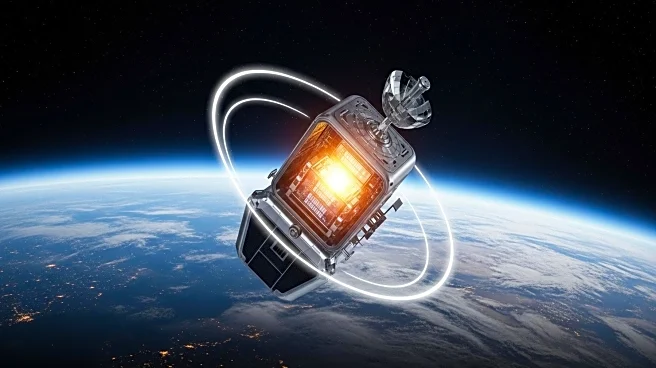What's Happening?
OpenAI, as part of a consortium, is spearheading the $500 billion Stargate project, which aims to address the environmental impact of data centers by potentially relocating them to space. The initiative is driven by the increasing electricity demand of AI data centers, which could rise by 165% by 2030, with over half of their energy currently sourced from fossil fuels. This has prompted concerns about reversing progress on climate change. OpenAI CEO Sam Altman has suggested that placing data centers in space could alleviate these issues by utilizing 24/7 solar power and reducing pollution. The concept, while ambitious, is gaining traction among tech leaders like Jeff Bezos and Eric Schmidt, and startups such as Starcloud and Lonestar Data Systems are exploring its feasibility.
Why It's Important?
The potential relocation of data centers to space could significantly impact the U.S. technology and energy sectors. By reducing reliance on fossil fuels, this initiative could contribute to climate change mitigation efforts. It also presents a novel solution to the growing energy demands of AI infrastructure, which are projected to consume up to 12% of the U.S. electricity supply by 2028. However, the high costs and technical challenges of space-based data centers remain significant hurdles. If successful, this could set a precedent for sustainable tech infrastructure, benefiting both the environment and the tech industry by reducing regulatory burdens and operational costs associated with terrestrial data centers.
What's Next?
The Stargate project and similar initiatives are still in the experimental phase, with companies like Starcloud planning satellite launches to test the concept. The feasibility of large-scale space-based data centers will depend on advancements in space technology and cost reductions. Meanwhile, regulatory frameworks for space operations remain underdeveloped, offering a window of opportunity for early adopters. As the project progresses, it will be crucial to monitor developments in space technology and regulatory responses, which could shape the future of data center infrastructure.
Beyond the Headlines
The proposal to move data centers to space raises ethical and legal questions about space utilization and environmental responsibility. The lack of regulation in space could lead to unchecked expansion, potentially creating new environmental challenges. Additionally, the concept of a Dyson sphere, while theoretically appealing, highlights the need for sustainable resource management on a planetary scale. These considerations underscore the importance of developing comprehensive policies to govern space-based operations and ensure they contribute positively to global sustainability goals.










